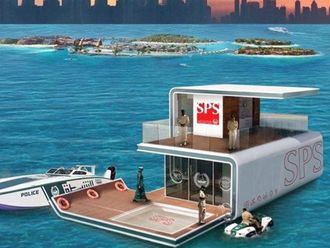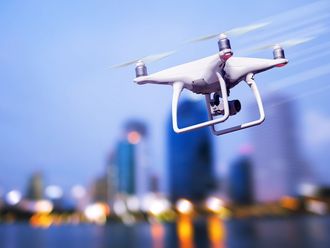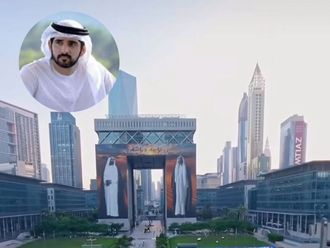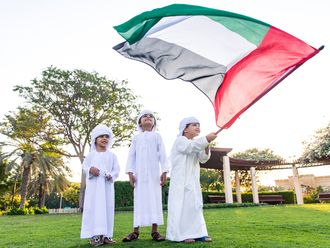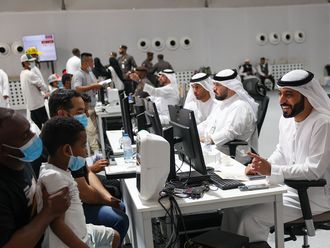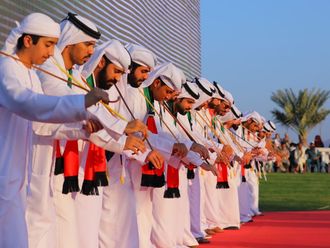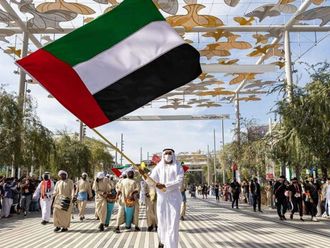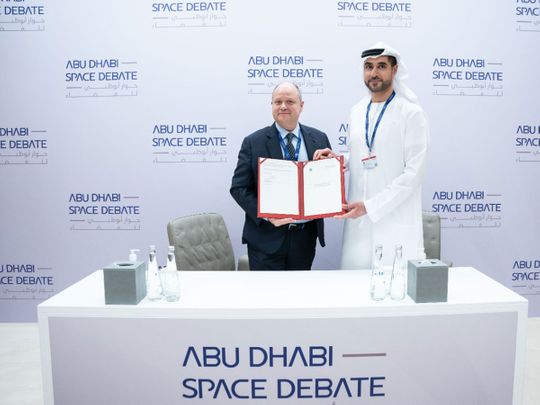
Abu Dhabi: The UAE has signed two major cooperation agreements on the sidelines of the Abu Dhabi Space Debate, with one establishing a new global centre with France to address climate change and another enhancing space cooperation with the Philippines.
The Space for Climate Observatory, established under a charter between the UAE Space Agency and French space agency, the Centre National d’Etudes spatiales (CNES), will bring together entities involved in Earth observation, and increase the efficiency of applications for sustainable and successful climate action at the local and global levels. In doing so, it will support global climate action, and develop the capacity to study, track, mitigate and adapat to the impacts of climate change.
The charter for the new observatory was signed by Ibrahim Al Qassim, deputy director general of the UAE Space Agency, and Lionel Suchet, chief operating officer at CNES.
In addition to organising climate action exchange of tools and experiences, the centre will regulate access to actors in the space sector in order to promote cooperation between space agencies.
UAE in space
The UAE has been making inroads in the space sector over the last few years, and is one of only six countries globally to launch a successful Mars orbiter. In total, it has launched 19 orbital satellites till date, with more than 10 new spacecraft under development. The UAE also houses more than 50 global and emerging space companies, institutions and facilities, as well as five research centers for space sciences, and three universities with dedicated space programme. At present, more than 3,000 workers, engineers and experts are actively involved in the country’s space sector.
After launching the Emirates Mars Mission orbiter in February 2021, the UAE is looking to launch the Rashid Rover to the moon shortly, and has announced plans to send an Emirati astronaut to the International Space Station for a long-term mission.
Climate observatory
“The launch of the Space for Climate Observatory comes as part of the UAE’s endeavor to find effective solutions to climate challenges,” Al Qassim said.
He added that the UAE is aware of the seriousness of climate challenges, and their negative impact on life on Earth, which is why it is actively participating in various international organisations and agreements that are looking for effective and comprehensive solutions to solve this problem.
The UAE is therefore keen to enhance international cooperation in order to reduce the impact of climate change, and considers the launch of the Space for Climate Observatory during a major event like the Abu Dhabi Space Debate a good step in its endeavours to consolidate the sustainability of the future and serve humanity.
“Space is a good place to contribute to the challenges related to climate change, which is a long-term process and it is good to have a set of extremely accurate data over a long period that contributes to providing scientific centres with information to help them cope with the problems caused by climate change,” Suchet said.
He pointed out that the aim of the Space for Climate Observatory is to make use of all available means for the sustainability of the environment, as the majority of countries today do not exchange their climate data captured via satellites. This then prevents the world from facing the climate crisis. According to Suchet, cooperation between countries will contribute to enhancing the contribution of the space sector in addressing the challenges facing humanity at a number of levels, especially environmental, economic and social.
Enhancing research
The Abu Dhabi Space Debate aims to enhance communication between the active and influential forces in the space sector around the world, by providing a gathering of senior leaders, policy and decision makers in the field of space worldwide.
To that end, the UAE Space Agency signed a Memorandum of Understanding (MoU) with the Philippine Space Agency (PhiSA) to enhance cooperation in scientific research and space exploration.
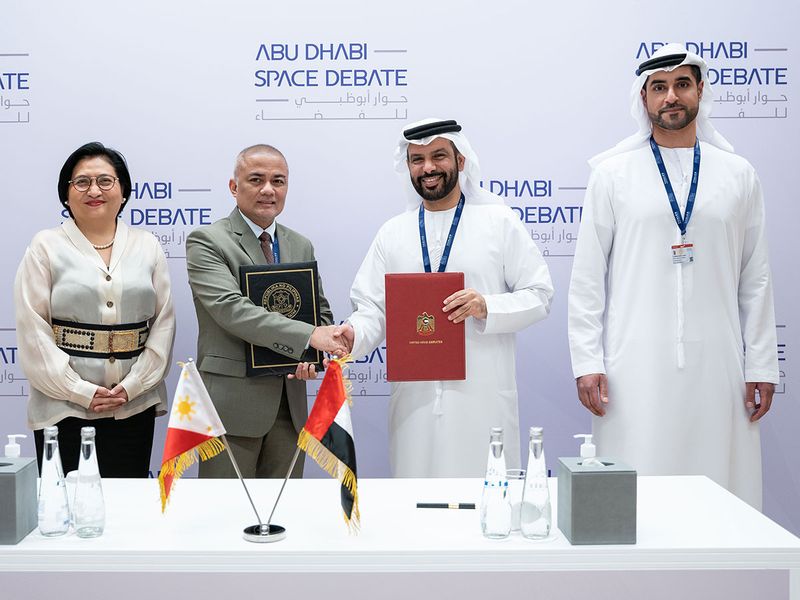
The MoU was signed by Salem Al Qubaisi, director general of the UAE Space Agency, and Dr Joel Marciano Jr., director general of the PhiSA.
This partnership is part of the UAE Space Agency’s goals to strengthen cooperation with international to accelerate accelerating the development of space technologies and sciences in the UAE, and contribute to the provision of research and exploration that serves humanity.
The MoU allows the two parties to conduct joint research and development in the field of space. It also enables the exchange of space data to support various fields of common interest and sustainability efforts, including climate change, disaster management, emergency response, food security and agriculture.The two agencies will therefore participate together in scientific missions, as well as hold joint conferences, workshops and knowledge-sharing activities. The UAE Space Agency and the PhiSA will also collaborate to support space education through student and graduate exchange programs.
“The UAE Space Agency is committed to constructive international partnerships with various agencies to exchange experiences, which reflects positively on the development of the space sector in the country, through developing qualified talents and human resources that can consolidate the sustainability of the sector,” Al Qubaisi said.
Dr Marciano Jt said the PhiSA is proud to partner with the UAE in creating joint opportunities to develop the domestic space ecosystem. He noted that the UAE has successfully launched various space related projects and initiatives, which places the nation among the active countries in this sector.


